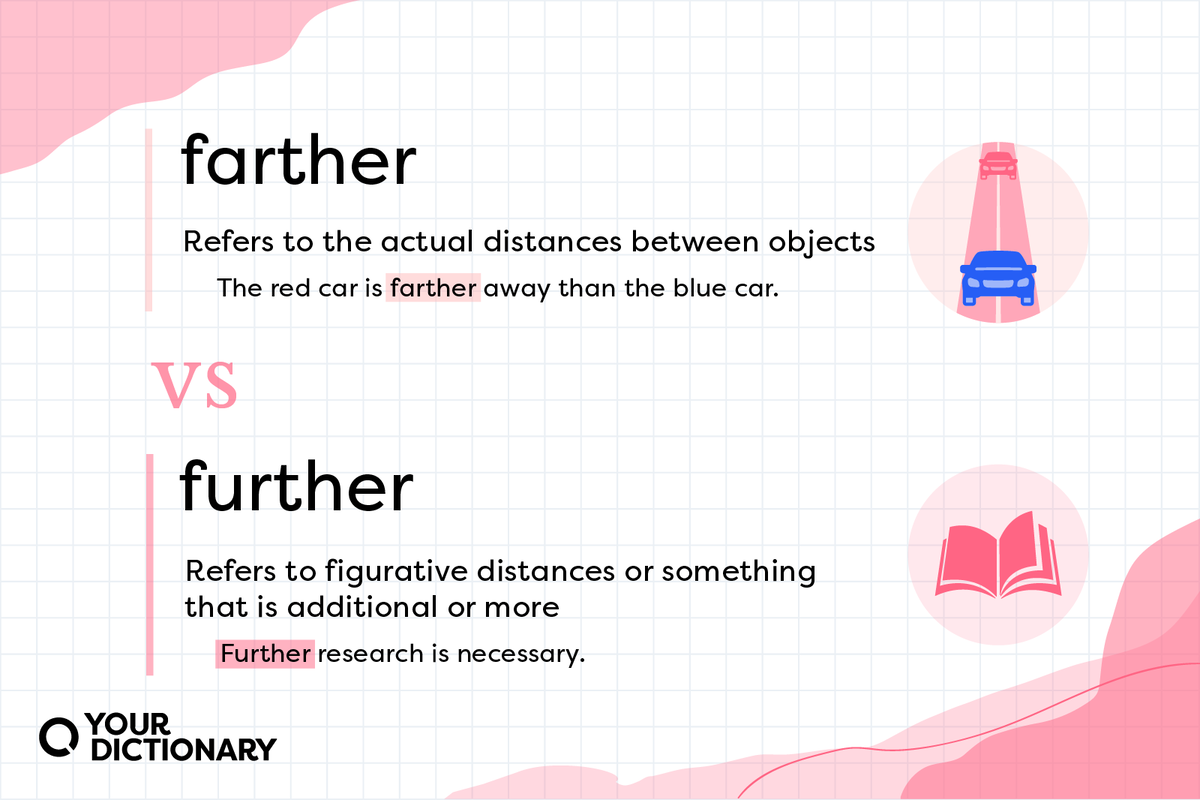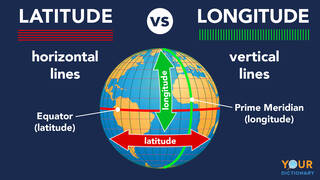
Although they are often used interchangeably, further and farther don't have the same meaning.
Farther refers to the actual distances between objects, while further refers to figurative distances or something that is additional or more.
- The red car is farther away than the blue car.
- Further research is necessary.
How To Use "Farther" in a Sentence
Farther refers to a physical or measurable distance.
When used as an adjective, farther describes when one object is more distant than the other, requiring a measurement of the distance from one common point to both objects.
- The red car is farther away than the blue car.
- The raft carried the family farther north than they had planned.
- The ice cream shop at the farther end of the boardwalk is cheaper.
When used as an adverb, farther indicates an action that results in a greater distance.
- The red car was driven farther than the blue car.
- Looking up, she realized she had swum farther than she'd thought.
- They couldn't walk any farther that day.
Helpful Hack
Farther has the word far in it, which will help you remember to use farther when talking about distances.

Latitude vs. Longitude: Differences in Simple Terms
How To Use "Further" in a Sentence
Further is defined as something that is additional, more, or advanced. It is often used for distance, as well, when there is no knowledge of the actual physical or time difference.
When used as an adverb, further expresses a relationship to a place or time, something additional or to a greater degree.
- I have much further to go before I can stop for the night.
- We need to research further into this matter.
- He was further annoyed by a second interruption.
When used as an adjective, further describes a distance or something that is beyond or additional. It can also refer to something that is greater in degree or amount.
- The council gave no further details on the new development.
- Joe could tolerate no further indiscretions.
When functioning as a verb, further refers to an action of helping something move forward or advance, usually in a symbolic rather than a literal sense.
- I need to take that extra course to further my education.
- How can we use social media to further the brand?
- To further their cause, they created an online petition.

Learnt vs. Learned: Quick Lesson on the Difference
Quick Usage Trick
One of our YourDictionary readers shared a great way to help you use further and farther correctly:
"If you can't replace further with additional or more in a sentence, you are probably using it incorrectly."
So, remember, farther is used for measurable distances, but you can use further in almost all other situations.
But, since the words have become so interchangeable, if there is some confusion on whether you are referencing a physical or figurative distance, it is now considered fine to use either word.
Is It "Farther from the Truth" or "Further from the Truth"?
Since the words themselves are basically interchangeable, this phrase also gets used both ways. Even dictionaries can't agree on which is correct.
However, since truth isn't tangible (you can't hold it or measure it for that matter), it's hard to measure a physical distance from it. So, in that case, further from the truth makes the most sense.